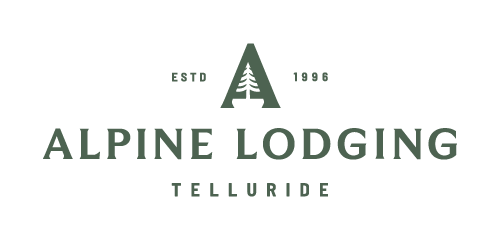
Telluride may be known for being a ski town now, but it used to be known for something much different – mining ghost towns. In the mid-to-late 19th century, the San Juans were chock full of all kinds of metals, but silver reigned king. Like the metal, the miners came and went, and their remnants remain in the form of outbuildings and old mining equipment
Rather than deteriorating all alone up in the mountains, many former mining towns, now full-on ghost towns, are waiting to be explored. Whether accessed by 4WD or a hiking trail, these Telluride ghost towns are not to be missed while here.
Our friends at Telluride Outside offer some of the best tours in the area with off-roading vehicles and local guides who know the routes (trust us, that’s important) and the history of the area. If you’d rather do it yourself, Mountain Adventure Equipment offers vehicle rentals for your own adventure. These aren’t just your average Jeep either – they offer specialty vehicles, such as the Toyota 4Runner TRD Pro.
Whichever way you decide to do it, these Telluride mining ghost towns are not to be missed while staying in the box canyon.
Alta Ghost Town

Alta Lakes and the Alta Ghost Town make for an easy day trip from Telluride. The ghost town itself is located at 11,800 feet and has several original buildings still standing. In its prime, a few hundred people lived there. While the buildings may be in disarray, be sure to snap an unreal shot of Mount Wilson through the window of one of the cabins. It will look like a painting.

Getting to Alta is easy. Either drive the 4WD road straight to the town or hike up the backside of the Telluride Ski Resort. Telluride Outside offers both half day and full day trips to Alta Ghost Town. Trips also features an adventure through Ophir Pass. Telluride Outside’s customized Chevy trucks include heavy padding and removable canopies, and are a great way to get all the best views. Either way you choose, the scenery is unreal and you’re sure to see a marmot or two hiding out.
Tomboy Ghost Town
Tomboy Ghost Town is a more adventurous trip from Telluride. Most people get there via a 4WD road that is not for the faint of heart. After a drive through Imogene Pass, you’ll hit Tomboy Ghost Town, which used to be home to almost 1,000 residents. It was known for its ore and was a fully-functioning town until the 1920s when it ran out. There’s a lot to see here considering the extreme weather conditions in the San Juans.

Getting there may be a different story. Many of the roads en route to Tomboy Ghost Town are slick, narrow and have steep drop-offs. This makes them ideal for experienced four-wheel drivers. Imogene Pass is rated moderately difficult at elevation of 13,000 feet, but Telluride Outside’s experienced drivers make the drive easy. They offer half – and full-day trips from Telluride that venture through Imogene Pass before heading to Tomboy Ghost Town. Full-day trips cover even more ground, crossing Imogene Pass into Ouray before returning via Ophir Pass or Black Bear Pass.

Tomboy Ghost Town is also accessible from the town of Telluride, but it is more strenuous of a hike. The trail begins at Oak Street and continues to the Liberty Bell Basin. It features the Liberty Bell Mine, before continuing to Tomboy Ghost Town. It loops back to town and takes approximate 7-8 hours for a round-trip adventure. It’s also possible to hike up Tomboy Road, but that also tends to be riddled with cars traveling the same route.

Animas Forks
Animas Forks, formerly known as the Three Forks of the Animas, is a historic mining town located at 11,200 feet near Silverton. The first buildings were erected in 1873. The town added a hotel, saloon, general store, a post office and 30 cabins by 1876. They even had a newspaper! But by 1920, it was a ghost town.
Located on the Alpine Loop, a 65-mile unpaved road that connects Lake City, Ouray and Silverton, that is accessible from Silverton with two-wheel drive in the summer. The roads past that, which go over Engineer Pass, all require four-wheel drive. It makes for a great spot to stop for lunch while Jeeping the Alpine Loop.

